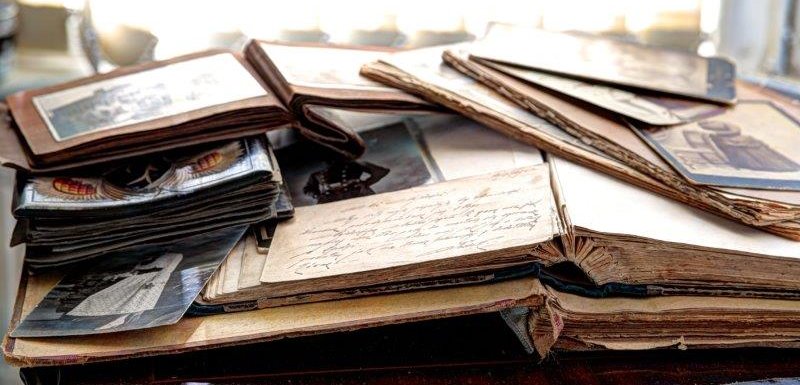
Historical context
This section takes you through some of the key milestones in adoption legislation, and how they relate to people wishing to access adoption records and/or make contact with birth relatives. Although this section is interesting it’s less focused on actions than the rest of the website so you may wish to skip this for now and come back later, although it is important to know your rights
The Adoption and Children Act 1949
Adoption and Children Act 2002
Intermediary Services Amendments 2014
Before 1926
Adoptions were first made legal in England and Wales with the passing of the Adoption Act 1926, while in Northern Ireland it was 1929 and in Scotland it was 1930.
Before that time, adoptions still occurred but were arranged informally or privately by organisations or directly between the birth mother and the adoptive parents. Sometimes there may have been a legal agreement, but often there may not have been.
You may see references before 1926 to Guardians of the Poor making placements for children. This is misleading. They certainly did do this but they did not place them with new families.
Instead, under poor Law legislation, they placed them in apprenticeships or in other permanent work arrangements. Information about these placements are now mainly held in County Record Offices.
Private adoptions after 1926
Despite Adoption becoming legal in 1926 with the Adoption of Children Act (covering England and Wales) not all adoptions took place through the local authority or voluntary adoption agencies. Some were arranged by individuals and are referred to as private adoptions and these were legal until 1983. Because there was no agency involved in these adoptions it can be much harder to find information about them.
The Adoption and Children Act 1949
The Act (England and Wales) brought in a major change in that if gave adopted children the same status as birth children by giving them the right to inherit. It made provision for the treatment of adopted people as children of adopters for the purposes of intestacies, wills and settlement. At the same time, the Adoption of Children (County Court) Rules 1949 and the Adoption of Children (High Court) Rules 1950, introduced a significant provision in that it enabled adoptive parents to conceal their identity from birth parents. Serial numbers rather than names appeared on the application form.
The Children Act 1975
It’s thanks to this Act that, if you’re 18, you can apply to the Registrar General for information to enable you to apply for a copy of your original birth certificate and also find out which agency arranged your adoption. These rights were retrospective so anyone adopted before that time could also apply. This was extended to Northern Ireland in December 1987. Adopted people in Scotland have always had the right to apply for their original birth certificate from 16 years of age. Find out how to access your birth certificate here.
The Adoption Act 1976
The Act was instrumental in making adoption more professional and regulated and subjected adoption societies to even more scrutiny. The Act placed a duty on each local authority to provide a comprehensive adoption service to all those involved in adoption.
The Children Act 1989
This Act (England and Wales) amended the Adoption Act 1976 by adding section 51A. This required the Registrar General to establish an Adoption Contact Register. The Registrar allowed adopted people and birth relatives to register their willingness for contact. In the same year, adopted people who lived abroad were no longer required to travel to the UK to receive counselling before they could receive the information they needed to obtain a copy of their original birth certificate.
Adoption and Children Act 2002
This was implemented on December 2005. It made radical changes to adoption law and introduced a raft of changes intended to improve adoption services for adopted people, birth relatives and adoptive parents
It is notable for allowing unmarried people and same sex couples to adopt jointly and also introduced the concept of special guardianship, where a child could be cared for under a legal order by a person with rights similar to a traditional legal guardian, but without the requirement for absolute legal separation from the child’s birth parents.
Finally, it established the framework that gives birth relatives of adults adopted before 30 December 2005 the right to request an intermediary service so that contact could be made with the adopted person to let them know of their birth relative’s wish for contact.
If the adoption took place on or after 30 December 2005, then a different framework to re-establish contact is in place.
If you hear reference to pre and post-commencement adoptions during your search for information then this is referring to the era you were adopted in. For example, if you were adopted before 30 December 2005 then this is a ‘pre-commencement’ adoption and from the 30th December it is a ‘post-commencement’ adoption.
The Children and Families Act 2014
On 9 December 2013, the Government tabled an amendment to the Children and Families Bill to add a new clause, which amended section 98 of the Adoption and Children Act 2002 to enable regulations to be made for the provision of facilitating contact between persons with a prescribed relationship (including descendants) and adopted persons. The regulations came into force on 31 October 2014
The inclusion of Section 98(1A) to the Act therefore enabled descendants of an adopted person or a sibling related by the adoption, to request an intermediary service. Before the amendment was made, they could not apply for an intermediary service, but now they can. It widened who could use intermediary services further than those permitted under the Adoption and Children Act 2002. Under the 2002 Act it was only the adopted person and birth relatives who could do so.